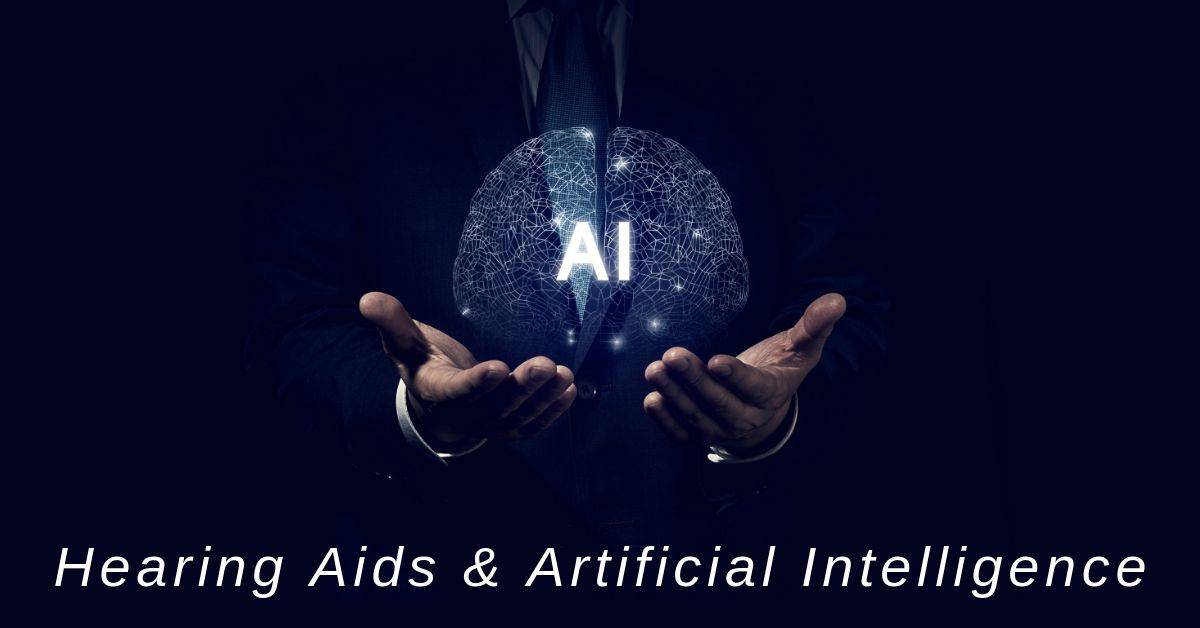You don’t realize how complicated hearing is until you have hearing loss and want it corrected. You want to hear sounds like they were meant to be heard, crisp, clear and, well, naturally. You don’t want a tinny sound or a weird echo or whistle. Hearing aid manufacturers understand that and they have joined the growing group of industries taking advantage of advances in artificial intelligence. The caring professionals at Desert Valley Audiology stay on top of hearing aid advancements and we are ready to help you adjust and thrive with your new hearing aids. The first step is to schedule an appointment.
What is Artificial Intelligence?
Artificial intelligence is a specific field of computer science with programs created to apply intelligent or learned solutions to complex problems. A common application is to process large amounts of data and then either by using set rules and guidelines – or determining what the guidelines would be – devising a response the average person would consider appropriate. While many people think movie robots when they think about artificial intelligence, some of the most recent applications have been to track and identify insider traders, do complex personnel scheduling or a camera set-up to take spontaneous photos of participants at a social occasion.
Hearing Aids and Artificial Intelligence Now
Hearing aids are little marvels of technology that can provide significant benefits and can even be paired with other electronics. If your hearing aids are integrated with your smartphone, they are using a computer. At least one hearing aid manufacturer has integrated learning technology with their hearing aids. It uses an app which lets users adjust the settings on their hearing aids based on their environment.
Think about it this way, wherever we are, there are layers of sounds happening all the time.
Some sounds are just background noise like the hum of insects outside or the sound of the refrigerator running. You may unconsciously block out sounds from a radio or television if you’re in the middle of a conversation of someone. Or, if you are at a performance featuring a family member, like a grandchild, you want to filter out the hum of florescent lights or conversation happening nearby.
Your brain does all these things as it processes sound, figures out what you are interested in and then blends the layers together and let you focus on what you want. As you experience hearing loss, the layers don’t blend as nicely and it’s harder to pick out a sound and focus on it.
There are hearing aids which “learn” about a particular environment that you frequent and automatically adjust. If you have to adjust a certain setting when you are walking outside in a certain area or if you are at church or at the mall, your hearing aid will remember what you wanted last time you were there. Another manufacturer uses high-speed, high definition processing to “recognize” natural sounds, layer than and replicate what you would naturally focus on to give you a better “natural” hearing experience.
Where is Artificial Intelligence Going?
A big challenge for hearing aid manufacturers is to create processors that filter out background noise while enhancing voices or specific sounds. Researchers are working on hearing aids that will learn how to isolate speech among other noises and enhance it and even learn to focus on certain specific voices. Artificial intelligence can be used to turn hearing aids into health monitoring devices. The artificial intelligence in your hearing aid would learn your normal pulse and breathing rate and remember that if you exercise at a certain time or if you are in a certain area your pulse goes up and so does your breathing rate. But if there is an issue – like a pulse rate or breathing rate change that isn’t normal – it would send an alert to a family member or perhaps medical professional. This would be a boon to people who want to live independently, but still has some security of knowing they have a link to family or friends. Researchers are also looking at if your hearing aid can be programmed to measure blood glucose and body temperature. And, of course, there are plans afoot to create the perfect hearing aids that fully mimic a natural ear.
Desert Valley Audiology
While some of these technological advancements are still being developed, we offer the most advanced hearing aids available. Contact us at Desert Valley Audiology for a hearing consultation and to learn more about how hearing technology can benefit you!

